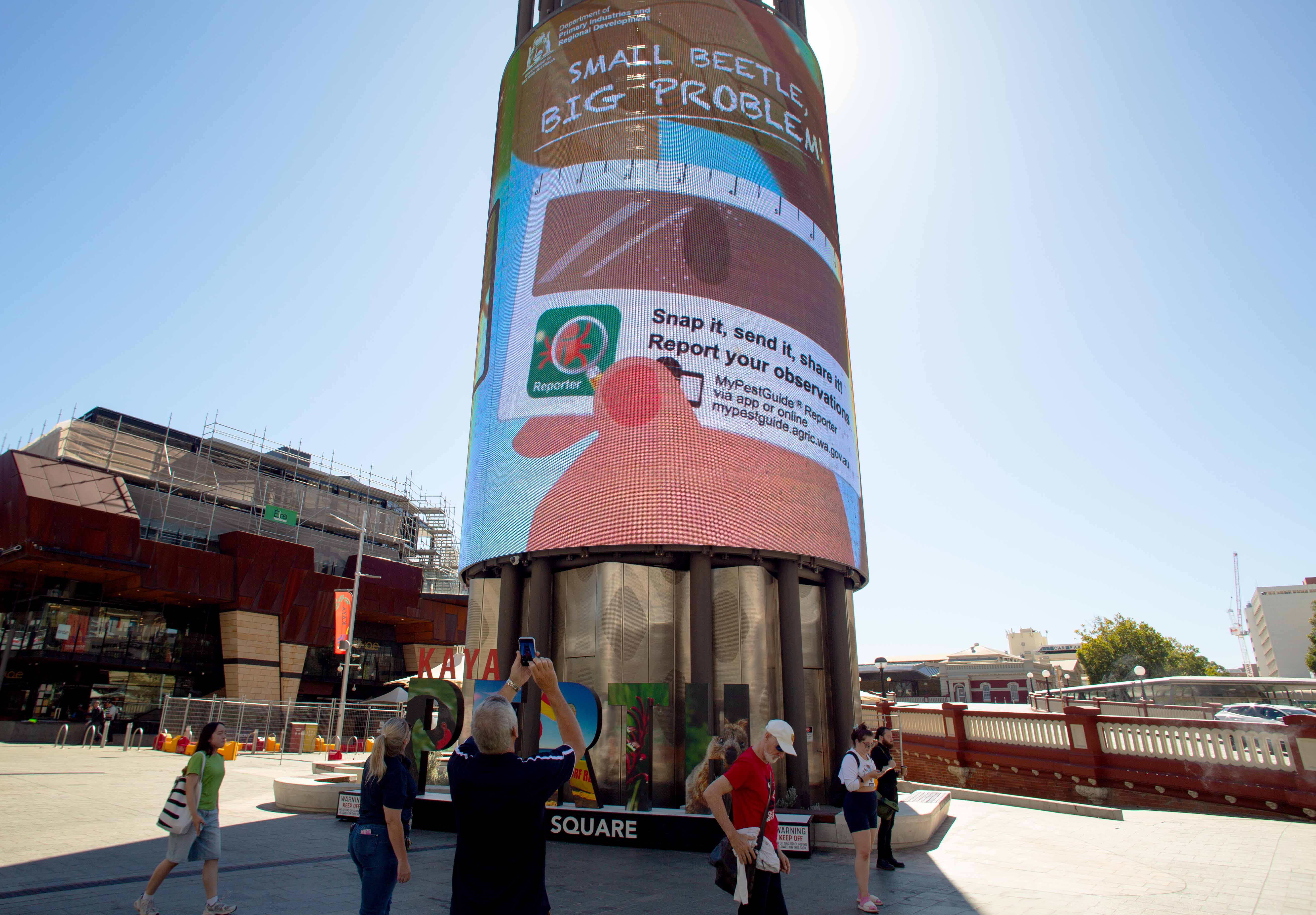
Find out more about the Polyphagous shot-hole borer.
PSHB was first detected in August 2021 and has now been confirmed in more than 80 suburbs across the metropolitan area in backyards, street verges, public open spaces, parks and reserves. A Quarantine Area is in place for most of the metropolitan area.
One of the impacted sites is Kings Park and DPIRD is currently working with Botanic Gardens and Parks Authority (BGPA) on the removal of PSHB infested Moreton Bay and Port Jackson fig trees from Mounts Bay Gardens (Goonininup) scheduled for early 2024.
The removal of these infested trees is vital to protect trees in the Western Australian Botanic Garden and the many rare and endangered flora in its collection.
Over the next month, a digital campaign will be rolled out at Yagan Square to raise awareness of the pest and encourage people to ‘look and report’.
A video animation will be screened on the Yagan Square tower and highlight DPIRD’s ongoing works to inspect, prune and remove infested trees to save Perth’s healthy trees.
To date, more than one million trees have been inspected on over 59,000 properties, making it the biggest surveillance program ever undertaken by DPIRD.
A/Biosecurity Executive Director Sonya Broughton said DPIRD was doing everything it could to stop the spread of PSHB as part of a national biosecurity response.
“We are working closely with residents, businesses, Traditional Owners, local and State government agencies and other community organisations to protect our healthy trees from this pest,” Dr Broughton said.
“PSHB can severely damage host trees once it takes hold with some species dying within two years of infestation.
“With no known treatments available, pruning and removing infested trees is currently the only way to prevent this serious pest from spreading to our other trees and putting the urban canopy at risk.”
Dr Broughton asked the community to continue checking their trees, particularly box elder maple trees, robinias, coral trees, Moreton bay and Port Jackson figs and London plane trees, and report any suspected beetle activity immediately to the Department of Primary Industries and Regional Development.
“It’s also important that wood and green waste is not moved outside of the Quarantine Area to ensure the pest beetle doesn’t spread beyond the metropolitan area,” she said.
Report signs of borer damage (or any unusual pests) via the MyPestGuide® reporter app or the Pest and Disease Information Service on (08) 9368 3080, email padis@dpird.wa.gov.au
For more information visit wa.gov.au/borer


